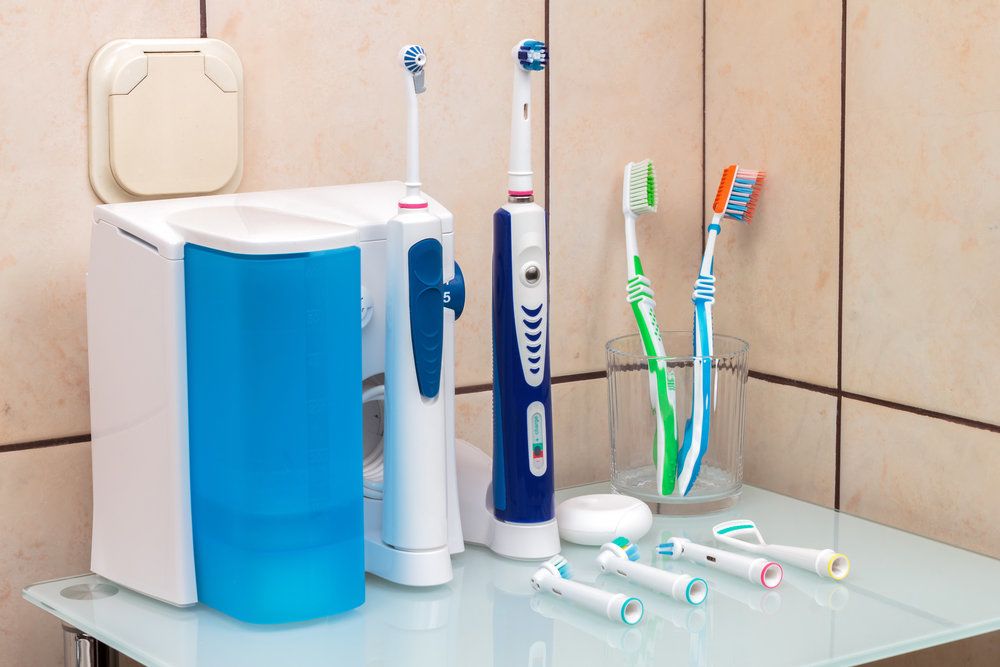Aggressive Tooth Brushing Is Dangerous to Dental Health
 Brushing the teeth is intended to keep the teeth healthy and free of tooth decay, but using too much pressure can lead to serious dental damage. Fortunately, restorative dentistry treatments are available to address dental damage associated with aggressive brushing, helping to improve oral health and restore the smile's appearance.
Brushing the teeth is intended to keep the teeth healthy and free of tooth decay, but using too much pressure can lead to serious dental damage. Fortunately, restorative dentistry treatments are available to address dental damage associated with aggressive brushing, helping to improve oral health and restore the smile's appearance.
During patient consultations, Drs. John M. Pinnix and George A. Betancourt explain the link between dental damage and aggressive tooth brushing at their Charlotte, NC practice. Here, we'll take a brief look at the different types of dental damage caused by aggressive tooth brushing along with some tips to protect your smile.
Dental Damage Caused by Aggressive Tooth Brushing
Many people are surprised to learn that brushing the teeth with a heavy hand doesn't clean the teeth better or do a better job of preventing tooth decay and damage. In fact, it does quite the opposite. Aggressive tooth brushing, which includes using a medium- or hard-bristled toothbrush, brushing with too much pressure, or using improper brushing techniques, can lead to such dental damage as:
- Enamel wear: Aggressive tooth brushing is highly abrasive and can wear away the hard, protective layer of the teeth, called the enamel. As the enamel is worn away, the teeth are left vulnerable to increased sensitivity, decay, and infection.
- Gum recession: Gum recession is a condition in which the gum tissue that supports the teeth wears down or pulls away and can be caused by aggressive brushing. As gum recession advances, gaps form between the teeth and gums, allowing bacteria and plaque to collect between the teeth and gums. Gum recession also exposes the delicate structures of the teeth usually protected by the gums to decay.
- Tooth decay: Both gum recession and enamel wear caused by aggressive tooth brushing can increase the risk of tooth decay by exposing delicate areas of the teeth to plaque and bacteria. If left untreated, tooth decay can lead to painful root canal infections or even tooth loss.
- Increased dental sensitivity: Aggressive tooth brushing can cause the teeth to become more sensitive to temperature changes. This may be a result of a loss of enamel or gum recession, which can allow temperature changes to reach the nerves of the teeth.
How Can You Tell if You're Aggressively Brushing Your Teeth?
In addition to noticing any of the forms of dental damage associated with aggressive tooth brushing, you can tell that you're aggressively brushing your teeth by looking at your toothbrush. If the bristles of your toothbrush are flattened or pushed back, you may be brushing too hard. Another thing to consider is the firmness of your toothbrush's bristles. Bristles that are medium or hard are generally too abrasive for the teeth and can lead to dental damage.
How to Avoid Aggressive Tooth Brushing
So how can you avoid aggressive tooth brushing? It's simple with these tips:
- Use a soft-bristled toothbrush: Switching to a soft-bristled toothbrush can reduce the abrasiveness of aggressive brushing while still effectively removing plaque and food debris from the teeth.
- Adjust your brushing technique: Poor brushing technique, like sweeping a toothbrush back and forth across the teeth, can lead to aggressive brushing. Prevent dental damage from aggressive brushing by adjusting your brushing technique. Rather than sweeping your toothbrush back and forth, hold your toothbrush at a 45-degree angle and use small circular motions.
Discover More Ways to Protect Your Smile
For more tips on avoiding aggressive tooth brushing or to discover other ways to protect your smile, we welcome you to schedule a consultation with Dr. Pinnix or Dr. Betancourt.


